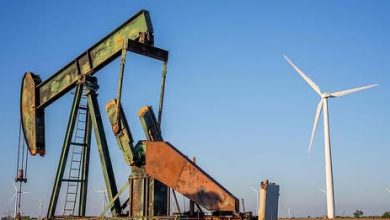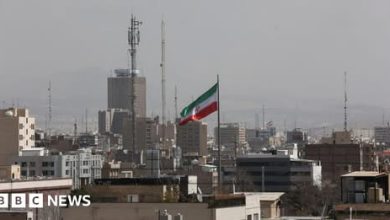OIL PRICES SOAR TO HIGHEST LEVEL SINCE 2008

BBC: 07 March 2022
Petrol prices have hit another record high as oil and gas costs soar amid fears of a global economic shock from Russia’s invasion of Ukraine.
Oil jumped to $139 a barrel at one point, the highest level for almost 14 years, while wholesale gas prices for next-day delivery more than doubled.
It came as the US hinted at a ban on buying Russian energy, as it looked to other countries to increase supplies.
However, European leaders rejected that idea on Monday.
German Chancellor Olaf Scholz said Europe had “deliberately exempted” Russian energy from sanctions because its supply cannot be secured “any other way” at the moment.
And Netherlands prime minister Mark Rutte said: “The painful reality is we are still very much dependent on Russian gas and Russian oil and if you now force European companies to quit doing business with Russia that would have enormous ramifications around Europe including Ukraine but also around the world.
Market turmoil
UK petrol prices have hit an average of 155p a litre, the AA motoring group said.
The market turmoil is fuelling concerns that the price of many everyday items from food to petrol and heating, already rising at their fastest rate for 30 years, could be pushed higher.
Analysts have already warned that UK energy bills could reach as high as £3,000 a year due to the surge in oil and gas prices.
Russia is the world’s second top producer of crude oil after Saudi Arabia, and supplies about a third of Europe’s needs. The price of Brent crude rose by more than a fifth last week amid fears of a reduction in Russian supplies.
After peaking at $139.13 a barrel early on Monday, the price of Brent crude – an international benchmark – fell back to around $125.
The latest rise in UK petrol prices has pushed the cost to more than £7 a gallon, the AA said. Filling up a car with a 55-litre tank now costs nearly £17 more than a year ago, rising from £68.60 to £85.59.
The boss of fuel delivery firm Portland Fuel, James Spencer, told the BBC he thought fuel prices could reach £1.70-£1.75 a litre. “Even if we can get extra [oil] supplies on to the market, nothing will happen quickly.”
He said that, to a certain extent, individual car drivers have options to cut their use by driving less, but added that businesses that have no alternatives were really starting to feel the squeeze.
The crisis continues to affect share markets. The main stock exchanges in France and Germany sank more than 4% in early trading before paring their losses, closing 1.3% and 2% lower respectively.
In London, the FTSE 100 dropped more than 2%, but then recovered to close 0.4% lower. Last week, the FTSE had its worse week since the start of the pandemic in March 2020.
In the US, markets ended lower with the Dow Jones and S&P 500 down 2.4% and 3% respectively. The Dow is now in a “correction”, having fallen 10% since its last record closing level on 4 January.
The price of gold, a haven in troubled times for investors looking for security, hit $2,000 an ounce for the first time in almost 18 months.
These are massive movements in the price of commodities – the raw materials that eventually feed, warm and transport us.
The extra movements this morning arose out of talk of an embargo on Russian oil. That is very significant, because Russia is the second biggest world exporter. Anyone passing a petrol station would have seen the impact. If there was an actual embargo, the price of an average tank could head close to £100, and indeed is already there at the most expensive service stations in the UK.
But we don’t need to be physically reliant on actual Russian supplies for it to feed through into the prices our suppliers pay and then pass on to us. The price for gas in international markets was already at incredible highs last week. It further increased by a third to frankly frightening levels, 10- to 15-times normal, above £6 per therm.
If in the first half of this year these prices average £3.20, then typical dual fuel bills in October could rise to £3,000 a year or £250 a month.
On Sunday, the US Secretary of State Antony Blinken said the Biden administration and its allies were discussing a ban on Russian oil supplies.
The comments came as pressure grows on the White House and other Western nations to take tougher action against Moscow over its invasion of Ukraine.
A Russian oil embargo would be a major escalation in the response to the invasion of Ukraine and would potentially have a major impact on the global economy.
However, some European countries are reluctant given their dependence on Russian energy supplies.
“While the US might just push through a ban on Russian oil imports, Europe can ill-afford to do the same. More worryingly, [Russian leader Vladimir] Putin, with his back to the wall, could turn off gas supplies to Europe, cutting off the continent’s energy lifeline,” said Vandana Hari at oil markets analysis firm Vanda Insights.
Mr Johnson said Europe could not simply shut down the use of oil and gas overnight, but that countries should move together quickly to look beyond Russia for its oil and gas supplies.
On Sunday, energy giant Shell defended its decision to purchase Russian crude oil despite the invasion of Ukraine.
The company said it was forced to buy oil from Russia in order to maintain timely supplies of fuel to Europe.
“To be clear, without an uninterrupted supply of crude oil to refineries, the energy industry cannot assure continued provision of essential products to people across Europe over the weeks ahead,” a spokesperson added.
A possible ban on buying Russian oil has intensified pressure to find alternative supplies.
The US is this week expected to press Saudi Arabia to increase crude production, and there is fresh impetus for a deal over Iran’s nuclear ambitions that would lift sanctions on its oil exports.
However, progress on a deal has been hampered after Russia sought a US guarantee that the sanctions it faces over the Ukraine conflict will not affect its trade with Tehran.





